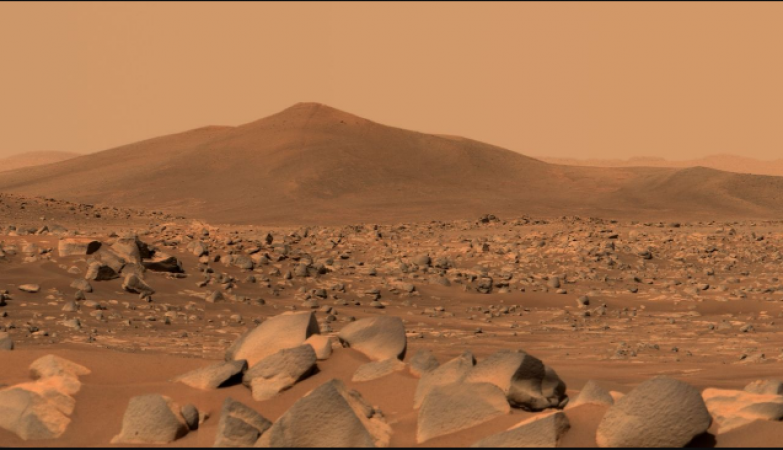
USA: Important new information about the conditions that made life possible on Mars is now available. Researchers at the University of Calgary found that the chemical processes of ancient Mars may have produced enough hydrogen to create a "planet-warming greenhouse effect". This may have eventually given the now-arid Red Planet habitable conditions by allowing flowing water.
The recent results of the search for life on Mars have been intriguing.
More information about the existence of water and the history of volcanic activity on Mars was recently revealed by a study using data from the Perseverance Rover.
The most recent research now contributes to an understanding of how the liquid water discovered by orbiter and rover missions on Mars may have formed.
Also Read: US sends Israel a request regarding the West Bank
When mantle rocks on Earth come into contact with water, a process called serpentinization occurs. Hydrogen is produced as a result of this process, and when it interacts with other gases in the atmosphere, it can have a powerful greenhouse effect.
Thus, it can aid in capturing more heat from the Sun. According to scientists, the same process may have happened on Mars about 3.5 billion years ago.
According to Tutolo, olivine-rich rocks have been brought to the surface by tectonic processes on Earth, such as volcanoes and mid-ocean ridges.
Also Read: 5G smartphone shipments in India grew 74% with Samsung leading
Every time these rocks "come into contact with water, the reaction ignites and hydrogen is generated. Additionally, the reaction produces" unique minerals and reduced organic compounds that can then support ecosystems and life. Can join with other components to form the basic elements of. ,
According to NASA's Curiosity rover and Perseverance mission, there is "substantial evidence" of water on Mars. The research will, in Tutulo's words, "help explain the strongly extraordinary discovery that there are olivine-rich igneous rocks present in Jezero Crater on the Red Planet". The Mars Sample Return (MSR) mission will return samples from Mars that the rover has collected to the planet.
The lack of hydrogen and water on Mars will be further investigated in the upcoming research. They must first understand how the production of hydrogen and the stabilization of liquid water on Mars would operate to do this. Why Mars is no longer warm will be another important issue they will address.
Also Read: In March SpaceX plans to attempt the first orbital test flight for Starship
Tutolo believes that studying geological processes on Mars will help us better understand Earth and the climate change we are currently going through. "By looking at the history of our solar system as recorded on Mars, we can begin to understand it all."